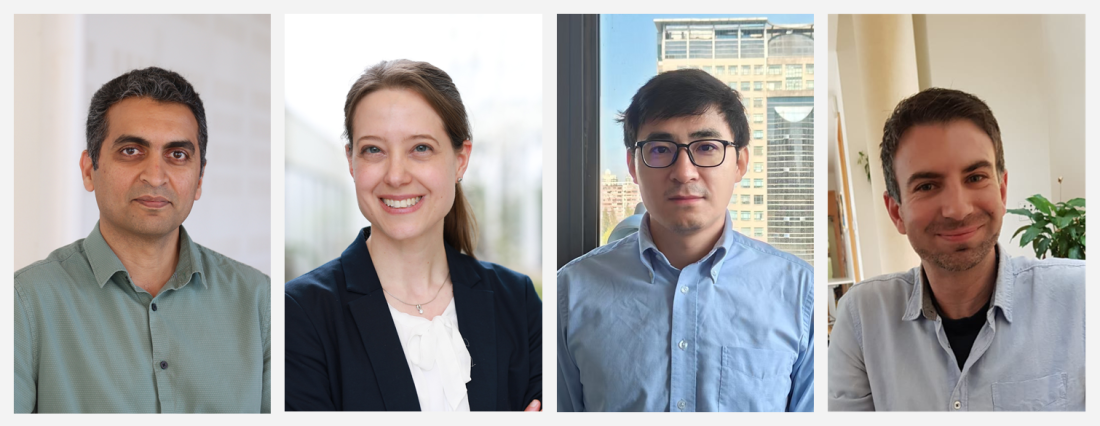Dunn School postdocs start new PI positions

L-R: Iqball Dulloo, Marion Schuller, Yongxu Lu, João Monteiro
Dr Iqbal Dulloo (Freeman lab)
Iqbal joined the School of Life Sciences at the University of Warwick at the end of September on an MRC Career Development Award. His group will study a newly discovered role of the signal peptidase complex (SPC), a membrane protease, in gene regulation through the generation of membrane-bound transcriptional regulators. By defining how SPC drives this unconventional signalling pathway and how viruses hijack it, this research will reveal a fundamental, unexplored mechanism with broad implications for health and disease.
Dr Marion Schuller (Ivan Ahel lab)
Marion joined the Max Planck Institute of Biochemistry in Munich in June. Her group will investigate the mechanisms and physiological role of ADP-ribosylation signalling in the interaction between phages and their bacterial hosts. With this research, her group aims to identify novel antibiotic drug targets and to develop biotechnological approaches including for phage-derived therapies.
Dr Yongxu Lu (Smith lab)
Yongxu has joined the Shanghai Institute of Immunology and Infection, Chinese Academy of Sciences. His group focuses on virus-host interactions, particularly viral immune evasion. The lab is investigating the role of E3 ubiquitin ligases in anti-viral responses, using techniques from virology, immunology, molecular biology, and vaccinology. The goal is to understand virus infection processes and translate these findings into new therapies for infectious diseases.
Dr João Monteiro (Raff lab)
João will also be joining the University of Warwick supported by an ERC starting grant. His group will focus on understanding how serious bacterial pathogens are able to survive phagocytosis and persist in immune cells. These infected cells are an important factor in cases of re-incident and chronic infections in patients. They will use emerging super-resolution microscopy techniques to explore both bacterial cell cycle and host cell organelle dynamics during phagocytosis. This will allow them to target bacteria deep inside phagosomes, while supplementing the host to help get itself rid of the infection.
We are committed to providing a launch pad for the careers of our postdocs and research staff. Find out more about the Dunn School Postdoc Programme.
Dunn School Postdoc Programme
Providing a launching pad for the careers of our postdocs and research staff.
Postdoc and Research Staff Association
The PRSA exists to represent and support all research staff in the Dunn School and is run by a group of volunteers.
More news
The latest news stories and research highlights from the Dunn School.